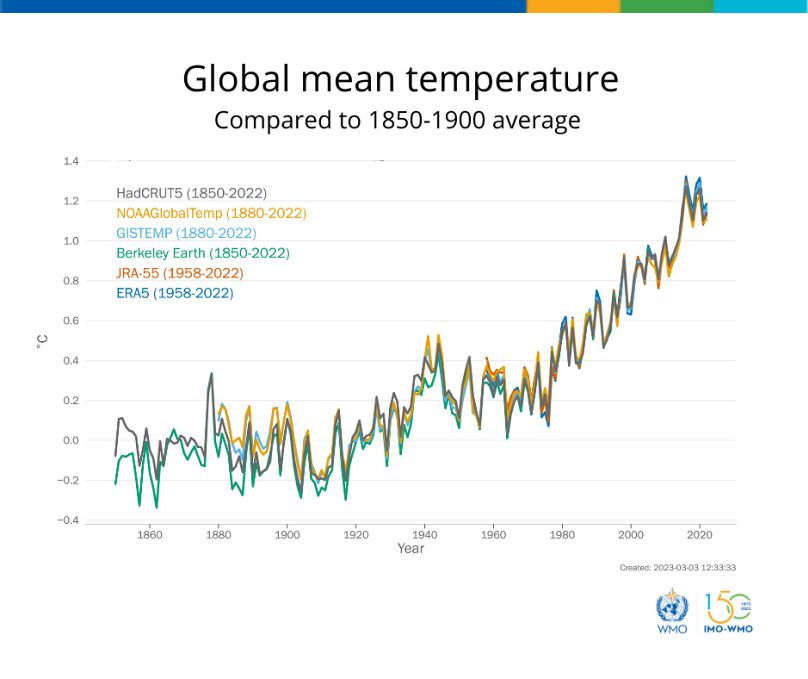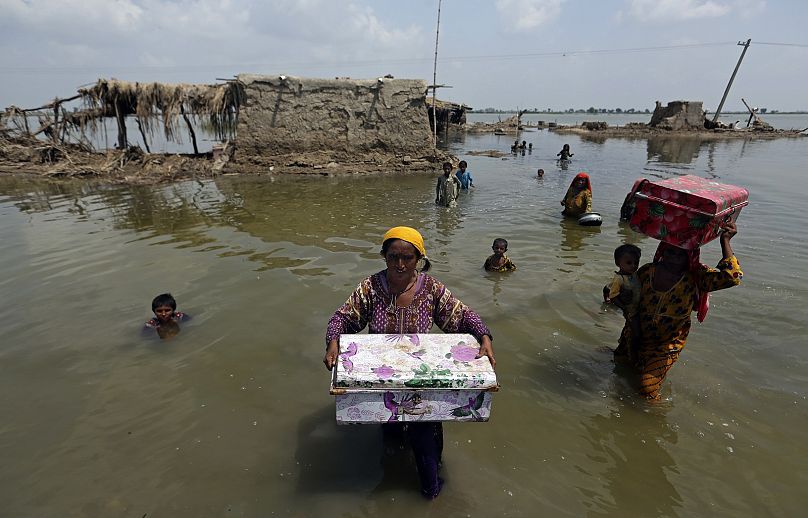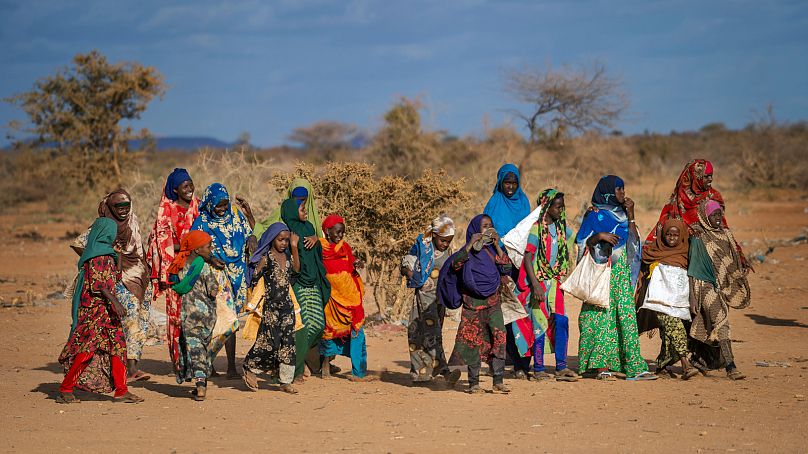In the World Meteorological Organisation's latest State of the Global Climate report, they warn that records have been broken across multiple climate indicators.
Last year, records for sea level rise, glacier melt, and temperatures were broken, the World Meteorological Agency (WMO) warns in a new report.
In the State of the Global Climate 2022 report released ahead of Earth Day, the UN agency highlighted the concerning trends marking the progression of climate change.
These include Europe shattering records for glacier melt in 2022 and sea ice in Antarctica dropping to the lowest level on record in February 2022.
On top of that, the ocean is becoming warmer, with the amount of heat stored at a new record high in 2022.
"We have stored more than 90 per cent of the excess heat that we have brought to the planet in the ocean and we have again broken new records in ocean heat content which is, for example, giving more energy for tropical storms, cyclones, hurricanes, and typhoons," Petteri Taalas, secretary-general of the WMO said at a press conference.
The rate of global sea rise has also doubled since 1993, reaching a new record high as well.
"We have doubled the sea level rise during the past 20 years. We used to have a 2.3mm per year sea level rise - 20 years ago - and recently we have seen 4.6mm per year increases. And that increase is very much coming from the melting of major glaciers in Greenland and Antarctica," Talaas said.
He added that global sea level rise could be particularly devastating as many of the biggest cities and areas with the highest population density around the world are in coastal areas. Low lying states like the Netherlands and Bangladesh are also at risk.
"It should be and could be one of the motivators of more ambitious means to mitigate climate change."
The last eight years have been the warmest on record
Globally, the last eight years have been the warmest recorded since 1850 with temperatures at 1.15 degrees Celsius above the 1850-1900 average.
Several temperature records across Europe were broken last year in individual countries like Sweden, the UK, Ireland and Germany.
But despite the continued broken records and advance of climate change, there were record high concentrations in 2021 of the three main greenhouse gasses, carbon dioxide, methane and nitrous oxide, the report added.
Last month, the world's leading climate scientists wrote in the latest Intergovernmental Panel on Climate Change (IPCC) report that the climate time bomb was "ticking".
Samantha Burgess, deputy director of the Copernicus Climate Change Service, has said that the level of greenhouse gasses produced in Europe for instance will make it unlikely to reach the 2015 Paris Agreement goal of limiting warming to 1.5 degrees Celsius, a conclusion also reached in the IPCC report.
"We have broken records in three main greenhouse gas concentrations. CO2, methane, and nitrous oxide, and the annual increase of methane concentration last year was the highest we have recorded since 1980," Talaas said.
And the scale of the gasses we've already emitted is likely to increase negative weather patterns until the 2060s, "regardless of our success in climate mitigations," he added.
The WMO report was released a day after a Copernicus report showed that Europe has experienced its second warmest year ever recorded in 2022, suffering intense and prolonged heatwaves and widespread drought.
Europe had its hottest summer on record last year, had a record loss of ice from glaciers, and a record number of hours of sunshine. This extreme heat led to adverse effects on human health, Copernicus added.
Climate change comes with humanitarian risks to society
“While greenhouse gas emissions continue to rise and the climate continues to change, populations worldwide continue to be gravely impacted by extreme weather and climate event,” Taalas said in a statement.
He added that drought in East Africa, record-breaking rainfall in Pakistan, and heatwaves in China and Europe affected tens of millions of people and cost billions of euros in damage.
The socioeconomic impacts of climate change include problems with food security and population displacement, the WMO report said, posing “multiple humanitarian risks to society”.
Heatwaves in India and Pakistan “caused a decline in crop yields” that was then exacerbated due to the war in Ukraine, the report added. A heavy monsoon season also led to the “spread of water-borne diseases,” according to the agency.
Climate and weather-related conditions have led to more internal displacement, too. The worst drought in 40 years in the Horn of Africa resulted in population displacement as did heavy storms in Syria and record rainfall in Pakistan where flooding affected more than 30 million people.
"High-impact weather events have led to displacement worldwide," Taalas said.
The WMO highlighted that some extreme weather events in 2022 “happened consecutively, leaving little time for recovery between shocks and compounding repeated and protracted displacement.”
Humanity depends on nature
In a statement ahead of Earth Day, UN Secretary-General Antonio Guterres warned that humanity depends on nature.
“From the air we breathe to the water we drink to the soil that grows our food – humanity's health depends on the health of Mother Earth,” Guterres said.
“Yet we seem hellbent on destruction.”
The WMO secretary-general said meanwhile that UN agencies were aiming to make sure that all people have access to early warning services.
"At the moment about one hundred countries do not have adequate weather services in place. Achieving this ambitious task requires improvement of observation networks, investments in early warning, hydrological and climate service capacities," he said.
And Talaas said, the cost of green technology is dropping - solar energy and electric vehicles are cheaper than ever before. He is confident that these climate-friendly solutions will soon become mainstream.
"What happened during the last 10 years is that governments have realised that there is a problem called climate change and they can see it with their own eyes," he explained.
Over the last 15 years, 32 countries have reduced their emissions while growing their economies. But we need to move quickly to mitigate the growing effects of climate change.
"We have a growing amount of means to be successful in climate mitigation but we have to speed up our action to be successful in reaching the Paris 1.5 to 2 degree targets," Talaas added.
"‘We are moving in the wrong direction."














